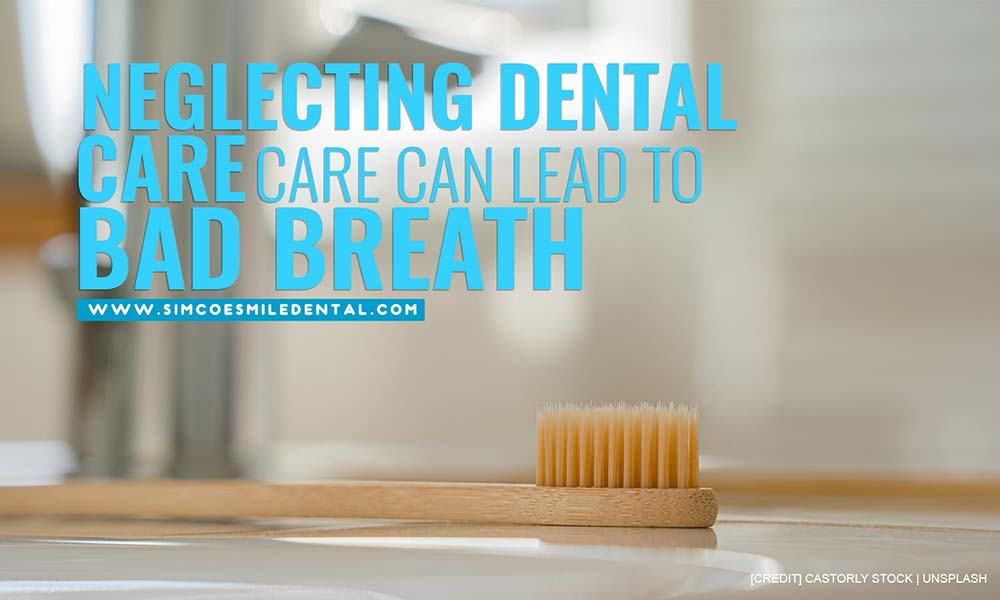It’s normal for people to wake up with morning breath. However, if the problem persists even after you brush your teeth in the morning, you may be dealing with halitosis.
A Quick Look at Halitosis

Halitosis, more popularly referred to as bad breath, is an oral health condition caused by a variety of factors including the overproduction of bacteria in the mouth, excessive smoking, and other health problems. While it is not a serious dental health issue, it could be a symptom of one. Additionally, although it does not put a person’s life at risk, it can still cause undue stress and anxiety while taking a toll on a person’s self-confidence.
Fortunately, depending on its underlying cause, the treatment for halitosis can be as simple as improving your dental care habits. However, it can also be caused by a variety of health issues that require the attention of dental and/or medical professionals.
Learn about the causes and cure for bad breath so you can regain your smile and confidence!
Symptoms of Halitosis
Here are some of the symptoms of halitosis that you need to watch out for:
- An unusual white coating on the tongue
- Plaque build-up on and around the teeth
- Burning sensation in the tongue
- Bad breath in the morning
- A constant bitter metallic taste in the mouth
- Dry mouth, thick saliva
- Post-nasal drip
Causes of Halitosis
Bad breath is common in kids and adults alike. is the result of one or more of these things:

- Poor Oral Hygiene
The most obvious cause of halitosis is poor oral hygiene. Dentists recommend regular brushing, rinsing with mouthwash, flossing, and tongue cleaning to keep the mouth feeling and smelling fresh.
Food particles can stay in the mouth after eating. These can accumulate and attract bacteria that can cause unpleasant odours. If left untreated, it can lead to gum disease, which is another major contributor of halitosis.
- Dry Mouth
The saliva is the mouth’s natural cleanser; your body needs to produce the right amount to maintain the natural ecosystem in your mouth. However, a certain condition called xerostomia, or dry mouth, affects the salivary glands, reducing its production of saliva. Without the saliva to protect your mouth, bacteria accumulate, causing bad odour.
- Infection in the Mouth, Nose, and Throat
Because bacteria is a major contributor to unpleasant odours, bacterial infections in the mouth, like tonsillitis, goes hand in hand with bad breath. Inflammation and other infections in other parts of the head (like chronic sinusitis, postnasal drip can cause halitosis) can also cause halitosis.

- Smoking
Tobacco products can cause mouth odour. People who smoke excessively can also develop gum diseases which also contribute to foul-smelling breath.
- Crash Diets
If you are planning to lose weight and you want to take the crash diet route, take this as a warning — doing so will give you a great chance of developing bad breath.
Techniques like low-carbohydrate diets and fasting breakdown fats and produce the chemical called ketones. Ketones have an extremely strong odour and will contribute to bad breath.

- Medications
Some medications can reduce the production of saliva which in turn, causes an increase in mouth odour. There are also drugs that contain certain chemicals that, when broken down, produce odours that manifest in a person’s breath.
In addition to medications, vitamin supplements can also generate foul-smelling bad breath.
- Diseases
Some metabolic diseases, cancers, and liver failure can also cause a person to develop bad breath. Gastroesophageal reflux disease (GERD), a condition that causes food, fluids, and acidic stomach juices to rise up to the esophagus; it is the most common digestive disorder that causes halitosis.
Other diseases that may cause bad breath include:
- diabetes
- ulcer
- liver issues
- kidney problems
- respiratory tract infections (e.g. pneumonia and bronchitis)
How to Manage and Fix Bad Breath

Take control of halitosis by learning how to treat it. Below are a few ways you can manage and/or eliminate bad breath:
- Change your oral care habits
Poor oral health habits can have very bad effects on your overall health, including the smell of your breath.- Brushing with a fluoride toothpaste at least twice a day keeps the germs away. Brush for 2 minutes so you clean all the areas in your mouth.
- Clean your tongue with a tongue scraper.
- Floss twice a day to remove food particles in areas that your toothbrush can’t reach.
- Rinse with a mouthwash twice a day after brushing.
- Replace your toothbrush every 3 months, when the colour on the bristles (if any) has faded, or when the bristles are frayed.
- If you wear dentures and other dental appliances, you need to follow the care instructions recommended by your dentist.
- Visit your dentist regularly
See your dentist every 6 months. In addition to getting your regular dental cleaning, visiting your dentist allows them to detect and address any problems you may have with your teeth and gums.
- Keep hydrated
Water is the best beverage that helps you maintain your overall health. Keep yourself hydrated by drinking adequate amounts of water. This does not necessarily mean 8 glasses a day. If you live an active lifestyle, you may need more than that. Stay away from sugary drinks since these can contribute to tooth decay.
- Quit smoking
Smoking is not only bad for your lungs, it’s bad for your mouth as well. You can keep halitosis away by quitting the habit. We understand that this may be a difficult process. Turn to your healthcare provider or dentist for assistance and advice.
- Address underlying health problems
Because your oral health is closely linked to the health of the rest of your body, you need to identify and address other health problems you may have. Digestive problems like GERD can be managed by eating a healthy diet, keeping the body healthy, and quitting bad habits like smoking and excessive alcohol consumption.
- Be mindful of the food you eat
Some foods have very strong aromas that can linger in the mouth for a long time. Spices like onions and garlic are often the culprit of bad breath. After consuming food with these ingredients, brush your teeth or suck on mint candies to wash away the odour.
Don’t let halitosis keep you from smiling. Turn it around and regain your self-confidence by taking your dental health into your hands. While it may be challenging to make certain lifestyle changes, it’s worth it.
If you have bad breath or are experiencing health issues that cause halitosis, turn to Simcoe Smile Dental. We provide exceptional dental services to help you manage or treat your condition. First-time patients and regular clients can call us at (289) 312-1482 to set an appointment.
